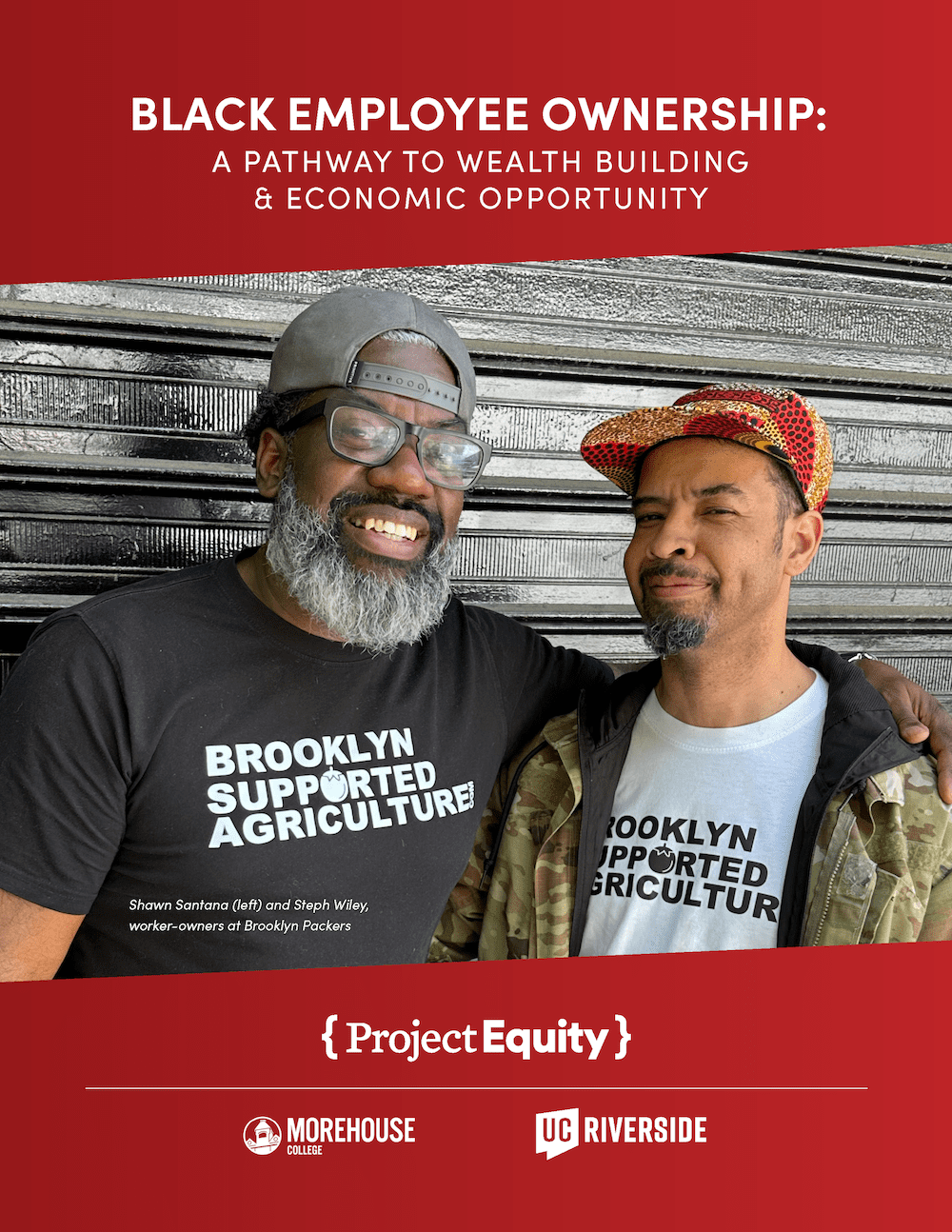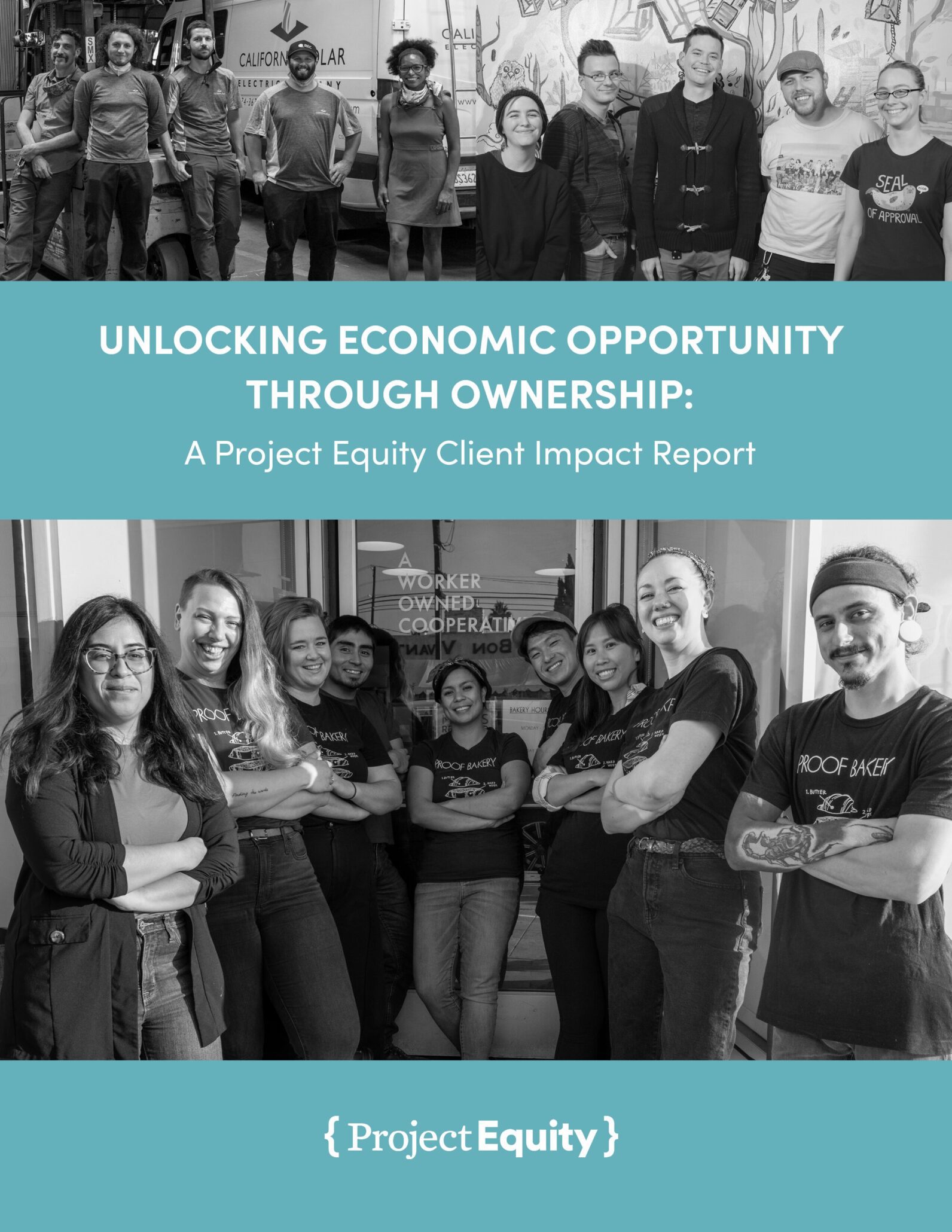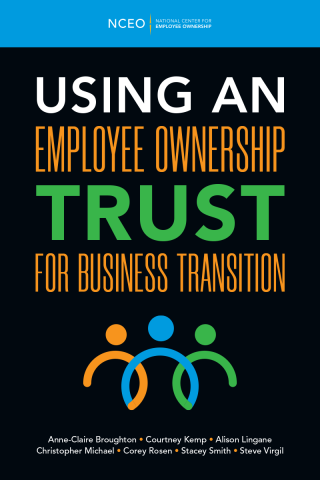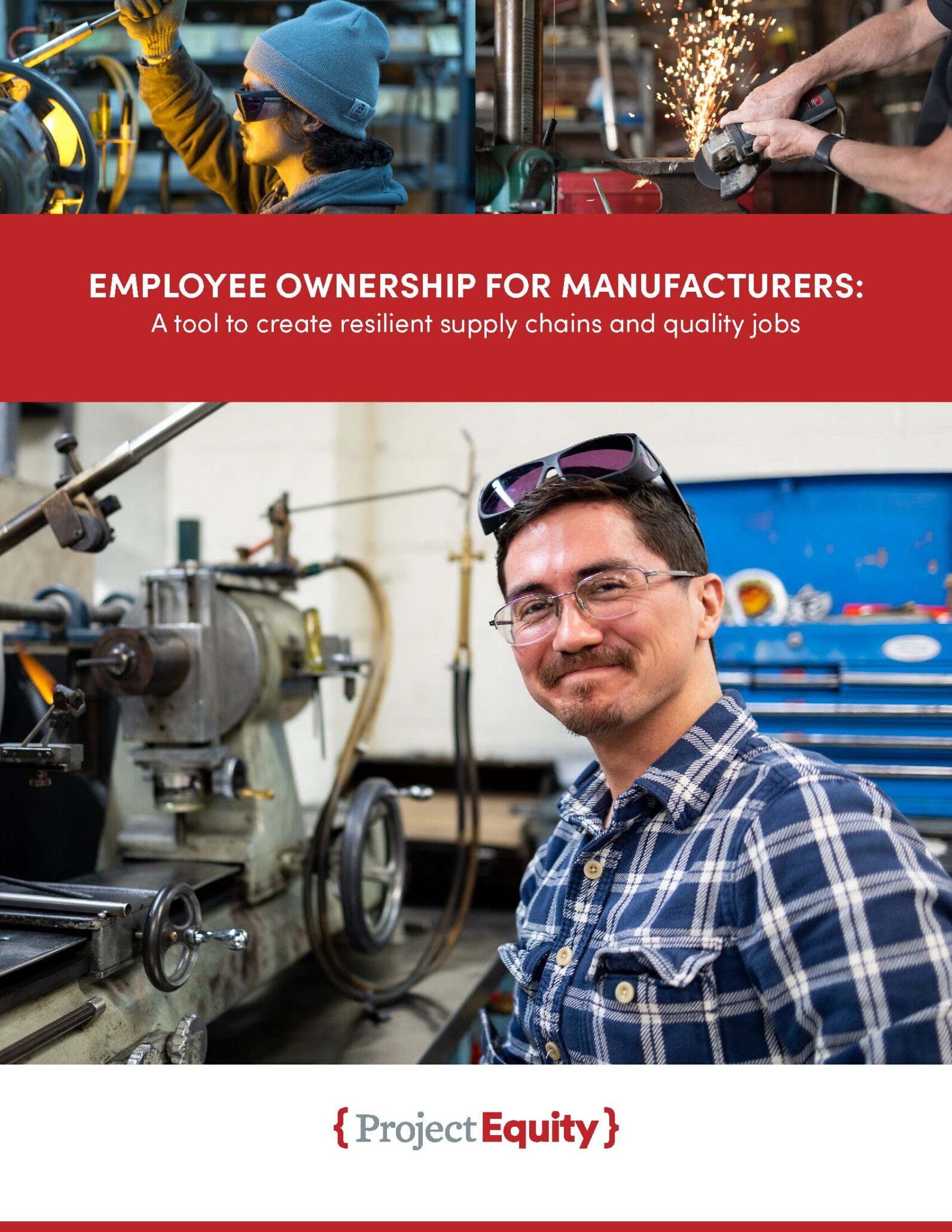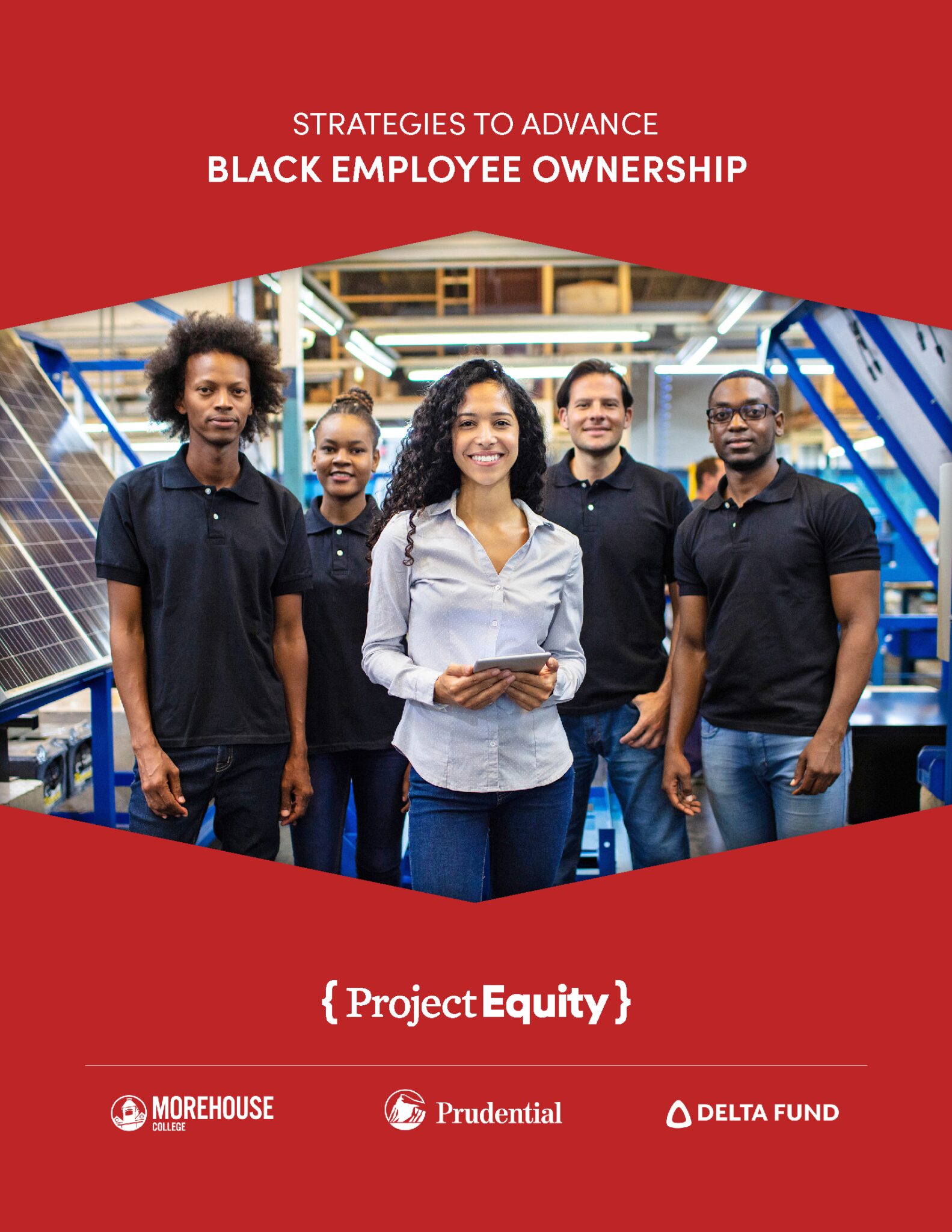February 2026
Black Employee Ownership: A Pathway to Wealth Building and Economic Opportunity is the culmination of a multi-year research project exploring the potential of employee ownership (EO) to advance economic prosperity in Black communities and help close the racial wealth gap.
Developed through a unique partnership with scholars at Morehouse College and the University of California, Riverside, the report examines how historical inequities, structural barriers, and contemporary policy environments shape access to EO for Black workers and entrepreneurs.
Through longitudinal data analysis, interviews and surveys of Black workers and entrepreneurs, a comprehensive policy audit, and case studies of Black-led employee-owned businesses, the report illuminates both the promise of EO as a tool for shared prosperity and the barriers that limit Black participation in EO.
To ensure EO is a viable pathway to economic mobility in Black communities, the report recommends a series of actionable policy solutions aimed at scaling EO into an economy-wide norm while ensuring Black communities can fully share in its benefits—from culturally relevant education and outreach, to robust incentives and wraparound supports that center racial equity, to investments in the leadership of Black-led EO support organizations and trusted intermediaries.
Together, these findings and recommendations offer a roadmap for policymakers, practitioners, and advocates seeking to build a more inclusive economy through EO.
Support for this research was provided in part by the Robert Wood Johnson Foundation’s Policies for Action program, and by the Urban Institute and WorkRise Network. We are deeply grateful for their partnership throughout this project.
Black Employee Ownership: A Pathway to Wealth Building and Economic Opportunity is the culmination of a multi-year research project exploring the potential of employee ownership (EO) to advance economic prosperity in Black communities and help close the racial wealth gap. Developed through a unique partnership with scholars at Morehouse College[...]
